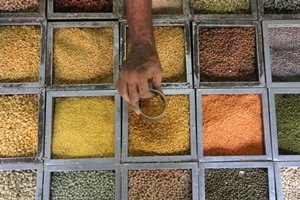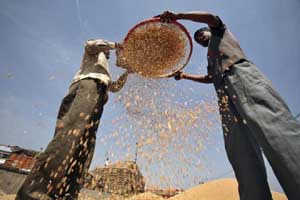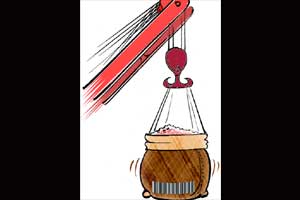
The current agitation of farmers on cereal, oilseeds and vegetables has attracted a lot of analysis with regards to the…

The current agitation of farmers on cereal, oilseeds and vegetables has attracted a lot of analysis with regards to the…

Contrary to the general perception that zero import duty on wheat notified by the government on December 8, 2016, will…

The cut in wheat import duty on September 23, 2016, from 25% to 10%, is a tacit but an indirect…

The government has taken a call on import of pulses from Mozambique, Malawi and Myanmar. It would be a loss-making…

Not only is FCI’s price likely to be uncompetitive, it may not be able to ensure timely delivery which is…

In 2016-17, import at the current rate of exchange (without custom duty) may not exceed Rs 1,400 per quintal against…
Agricultural output is in distress and, therefore, whispers of wheat import by the government due to a skewed supply-demand equation…

Markets can spring surprises and there is no room for complacency in fixing macro policies before it is too late
If one scans through agro-policy profiles of various governments across the globe, they are generally irrational, full of rhetoric for…
The aim should be to ship out the maximum tonnage, not calibrate the subsidy with the market
Competing countries’ depreciating currencies put them in an advantageous position even as India refuses to adopt tech advances in agriculture
Let the good grain be distributed under PDS to avoid political complications
There is no necessity to ‘fix’ MSP of commodities because markets are incorrigibly volatile.
India’s presence in global rice trade is a great stabilising force

The first year of the Modi govt saw some hits, like the offloading of FCI stock in the open market,…

The government should let the private trade take initiative to import, process and distribute pulses
The FIFO—first-in first-out—mandate that is applied for stock distribution to official stocks will not apply for current dispensation.
Centre must address the cane politics of states, or the demand-supply mismatch will remain